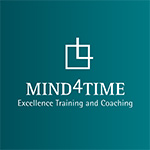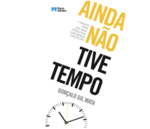Tradicionalmente, a problemática da gestão de tempo era vista como uma habilidade quase técnica: ser produtivo passaria pela arte de encaixar peças no puzle do calendário. Hoje em dia essa visão está mais que ultrapassada. Os avanços das neuro-ciências cognitivas e da economia comportamental vieram esclarecer que a otimização da rentabilidade de uma linha de produção é muito diferente da gestão emocional que subjaz ao mundo da eficiência pessoal.
De facto, um mundo de novidades na gestão de recursos mentais, passando pela focalização, orientação à ação, gestão de risco e definição intuitiva de heurísticas de sucesso, provocaram uma autêntica fratura com os antigos postulados clássicos da gestão de tempo, pouco adaptados aos dias de hoje.
Em particular, a escolha que fazemos, a cada momento, sobre o que vai merecer a nossa atenção no instante a seguir, passa por uma miríade de opções analisadas a um nível subconsciente. Assumindo uma simplificação abusiva, podemos padronizar que, de uma forma geral, nos aproximamos de tarefas e atividades com grande probabilidade de serem bem sucedidas, e úteis, afastando-nos do inverso: probabilidade de fracasso e despropósito. De facto, tendemos a recusar fazer o que não sabemos fazer bem, mobilizando natural resistência perante o desconhecido. Por outro lado, não gostamos de investir o nosso tempo em reuniões desnecessárias ou a construir relatórios que nunca serão lidos. Sabendo isto, podemos artificialmente estabelecer prioridades disciplinadas que contrariem estes princípios numa lista de tarefas ou no calendário, mas isso apenas resultará num grande desgaste e, com o tempo, provável noção de incumprimento e até sentimento de culpa.
É isso que se passa com quem se sente a "incumprir" na vida pessoal. Como Coach Executivo especialista em Produtividade Pessoal, contacto frequentemente com clientes que pretendem "equilibrar" vida profissional e pessoal. Muitas vezes, pretendem "matematizar" esse equilíbrio no calendário, esquecendo que, à semelhança do ginásio, ou atividades que fazemos "por obrigação", um equilíbrio forçado e alicerçado em mera disciplina passageira nunca será sustentável.
Qual é, então, a raiz desta questão? Onde reside o segredo para uma vida mais equilibrada?
A resposta é que, para a maioria das pessoas, a sua vida estará perfeitamente equilibrada, de acordo com a sua atual perspetiva valorativa, porventura mais a puxar para o curto prazo. Isto é: tem feito um bom trabalho profissionalmente? Isso tem-lhe merecido reconhecimento? Dá-lhe gozo mobilizar equipas em projetos desafiantes e com contributo valioso para a sua organização e para a sociedade? E em casa? De que modo aprecia estas mesmas perguntas? Que tal vai de performance? E o desafio, interessante ou demasiado rotineiro? Sente utilidade no investimento do seu tempo junto da sua família ou das suas atividades de lazer, ou fica a pensar que poderia estar a adiantar algumas coisas no computador? Obtém verdadeiro reconhecimento ao "portar-se bem" no campo pessoal? Parece-lhe uma "concorrência" justa no dia-a-dia comparar o gozo do estrelato profissional com a relativa banalidade da vida pessoal?
De facto, muitas vezes é só quando nos chega um aniversário com algarismos assustadores, ou quando uma consulta no cardiologista nos dá um estremeção, que nos apercebemos que os filhos cresceram rápido demais enquanto não estávamos lá, que se evaporou o tempo para tempo de qualidade, que foram tão poucas as férias a sério, como sonhávamos quando jovens, e que não colecionamos assim tantos momentos de tranquilidade, sossego e bem-estar, sempre aflitos com o peso de mais um desafio lá na empresa e de tanta responsabilidade profissional. Afinal de contas, qual o propósito de tanta batalha? Qual a promessa para o fim da corrida? Qual o sentido de tudo, senão a própria viagem?
É, pois, apenas quando clarificamos os grandes projetos da vida, lhes revemos a importância e lhes redefinimos a noção de cumprimento, que nos podemos abandonar à tranquilidade de sentir reequilibrar-se quase sozinho o calendário, não em esforço - só porque racionalmente "me disseram que tinha que ser"-, mas de forma fluída e natural: já que intuitivamente passa a ser a única coisa que dá sentido a tudo o resto. Chega-se mais cedo a casa, dizendo "já chega por hoje", de forma natural. Deixa-se o computador no escritório, e escolhe-se um livro agradável. Põe-se o telemóvel em silêncio e as brincadeiras com os miúdos ficam mais ricas. Sem grande disciplina. Volta a equilibrar-se o equilíbrio, como sempre, apenas tendo mudado a perspetiva que nos faz dar o valor justo a cada coisa.
Gonçalo Gil Mata
Traditionally, time management was seen as a nearly technical skill: being productive included the art of fitting pieces into a schedule puzzle. Nowadays that perspective is beyond outdated. The advances of cognitive neuroscience and behavioral economy clarified that the optimization of a production line profitability is quite different from the emotional management that underlies the personal productivity world.
In fact, a world of novelty about mental resources management, from focus, action orientation, risk management and intuitive definition of success heuristics, caused a real fracture with the old time management classical postulates, so little adjusted to present times.
Particularly, the choice we make, every given moment, about what is going to deserve our attention in the next instant, concerns a myriad of options analyzed at a subconscious level. Assuming an abusive simplification, we can standardize that, in general, we tend towards tasks and activities with greater odd of success, and usefulness, and we move away from the opposite: odds of failure and lack of purpose. In fact, we tend to refuse doing what we don’t know how to do well, mobilizing a natural resistance facing the unknown. On the other hand, we don’t like to invest our time in unnecessary meetings or writing reports that will never be read. Knowing this, we can artificially establish disciplined priorities that go against this principles in a to-do list or in the calendar, but that will only bring great weariness and, with time, probable notion of failure or even guilt.
That’s what happens with those who feel failing in their personal lives. As an executive coach specialized in Personal Productivity, I frequently come in contact with clients intending to balance personal and professional life. Most of the time, intending to materialize that balance in the calendar, forgetting that, similar to going to the gym, or other activities we “have to do”, a forced and grounded in mere passing discipline balance will never be sustainable.
What is, then, the root of this question? Where lies the secret to a more balanced life?
The answer is that, for most part of the people, life is perfectly balanced, according to their present evaluative perspective, probably more short term centered. This is: have you been doing a great work professionally? Is that bringing you acknowledgment? Does it bring you pleasure to mobilize teams in challenging projects and with valuable contribution to your organization and to society? And at home? How do you analyze these same questions? How is your performance? And the challenge, interesting or too boring? Do you see utility in investing your time in your family or in your leisure activities, or do you usually think you’s better advancing some work at the computer? Do you get true acknowledgment when you “behave well” at a personal level? Does it seems to you like a fair “deal” to daily compare the professional stardom pleasure with the relative triviality of personal life?
In fact, most of the times it’s only when an anniversary with some scary candle numbers arrives, or when a cardiology appointment gives us a shake up, we realize our children grew up way too fast while we were not there, that time for quality time evaporated, that there were only a few real holidays, like the ones we dreamt of when we were young, and that we didn’t collect so many calmed, relaxed and well being moments, always afflicted by the weight of yet another challenge back in the company and by so many professional responsibility. After all, what’s the purpose of so many battles? What’s promised at the end of the race? What’s the sense of everything, if it’s not the journey itself?
It’s only when we clarify the great projects in life, when we review their importance and redefine the notion of fulfillment, that we can leave ourselves to the peace of feeling the calendar rebalancing almost on its own, not in effort – just because they rationally “told me it must be like this” – but in a fluid and natural way: because it starts to intuitively be the only thing that brings sense to everything else. You arrive home earlier, saying “enough for today”, naturally. You leave the computer at the office, and choose a good book. You put the mobile phone in silence and the plays with the children become richer. Without great discipline. The balance balances again, as always, only having changed the perspective of what makes us give the fair value to each thing.
Gonçalo Gil Mata




